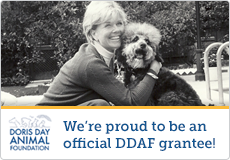The Oakland Press (theoaklandpress.com), Serving Oakland County
Local
Virus strikes Pontiac dogs
Saturday, September 6, 2008 3:00 AM EDT
As the late summer air hangs thick, temperatures stay warm and puppies aren’t vaccinated, a virus is spreading through Pontiac killing puppies and young dogs.
Hundreds of cases of Parvovirus have occurred in Pontiac this summer, killing many dogs.
Infected dogs have been reported from about 180 of city’s streets this summer, said Pam Porteous, manager of the Animal Care Network in Pontiac, a nonprofit group that helps support low-income pet owners.
“These last couple weeks has been really, really bad,” she said. “I’ve been picking up puppies in comas.
“It seems like every summer it gets worse. It starts up when it really gets hot out in the summertime. The last couple weeks have just been crazy.”
Though every breed is susceptible to the virus, rottweilers, Dobermans and pit bulls catch it most easily and get the sickest.
Pontiac is “like a breeding ground for pit bulls,” Porteous said.
“The day they stop eating, you’ve got to take it into the vet,” she said of any possibly infected dog.
Several factors are creating the alarming situation in Pontiac, starting with improper vaccination, she said.
“There are so many animals in Pontiac and nobody gets the vaccines and they’re walking them in the streets,” Porteous said.
It’s also common for dogs in the city to be passed along several houses while they’re still puppies with owners getting one vaccine and telling the next owner the dog has been fully vaccinated when it hasn’t, she said.
“You need documentation, otherwise it’s as good as dead,” Porteous said. “A lot of people don’t understand that you have to do a series of puppy vaccines to build up their immunity and then they only have to be vaccinated once a year.”
Katherine Isbell, veterinarian assistant at Pontiac’s Bloomfield Pointe Veterinary Hospital, said, “I can’t believe the amount of cases that we’ve seen, and it breaks my heart.
“For just the four weeks that I’ve been here, I’ve seen three or four a week, and that’s a lot. The thing is, people get these puppies from breeders who say they’re vaccinated and they aren’t. The main thing is, you’ve got to vaccinate.”
The virus can be tracked on any surface where an infected dog’s feces has been, including the bottom of shoes or the tires of a vehicle.
A concentrate of bleach and water will destroy the virus from surfaces it has touched. It’s believed the virus can live for up to a year.
“Parvovirus is kind of common because it’s the summertime. It’s a virus that’s kind of hardy in the environment. It’s a bad time of year because of the moist, humid conditions,” said Nancy Flanagin, veterinarian at the Waterford Veterinary Hospital.
It’s much cheaper to vaccinate a puppy than it is to attempt to treat parvovirus.
A series of distemper vaccinations can cost about $40, while treating the virus can cost anywhere from hundreds to thousands of dollars without a guarantee of the animal’s survival.
“Because it’s a virus � we can’t treat a virus � what we literally do is support the dog while the virus runs through its system,” Flanagin said.
The dogs are treated with intravenous fluids, protein infusions and antibiotics for nausea, diarrhea and vomiting.
“I’ve treated parvo anywhere from one day to 10 days,” Flanagin said. “There’s no test you can look at and say, �This dog will be a really, really hard case.’ If treated in the hospital, I would say probably 70 percent survive. If treated at home, I would say probably 70 percent die.”
She said she doesn’t see cases of the virus coming from dogs living in Waterford Township very often, having seen the most recent case in early spring.
Sgt. Joanie Toole, administrative supervisor of Oakland County Animal Control, said she hasn’t seen a case for about a month.
“It’s not as prevalent as it used to be when I started here 20 years ago,” she said.
“It’s bad in Pontiac, it’s a horrible animal city,” Porteous said, adding, “We’re not giving up.”
Parvovirus information
Parvovirus, spread through ingesting feces, mostly attacks puppies and young dogs that haven’t been vaccinated and can kill them quickly. The first symptoms appear within five to 10 days of exposure, and without treatment, those infected with the virus often die within two to four days.
Warning signs include:
� Loss of appetite
� Vomiting or diarrhea with a distinct foul smell, often bloody.
� Becoming dehydrated and rapidly losing weight.
� Loss of energy
� Fever Source: Michigan Humane Society’s Web site, www.michiganhumane.org
URL: http://www.theoaklandpress.com/articles/2008/09/06/local/20080906-archive4.prt
© 2012 theoaklandpress.com, a Journal Register Property





